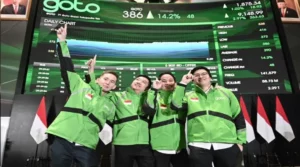From Start to Sustainable
After over 10 years in business, GoTo Group’s on-demand segment is nearing profitability, with mobility and food delivery units on track to hit positive EBITDA in Q4.
The segment narrowed losses 95% in Q3 to just $3.1 million. Initiatives like cheaper GoCar options and proprietary tech are reducing reliance on rider incentives and subsidies.
“We’re strategically managing and reducing our cost base while defending our market-leading position,” said transport chief Shobhit Singhal.

A Decade in the Making
Regional rival Grab turned profitable faster, but Gojek claims expanded services tailored for value-conscious riders can unlock 50-60% more users without discounts.
Beyond subsidies, GoTo cut Q3 marketing spending by 36% overall. Aligning with group aims, Gojek hopes to cement adjusted profitability this quarter.

From Inception to the Verge of Profitability
The targets come after GoTo slashed 1,900 jobs amid cancelled IPO plans. Now, the company is expanding in Indonesia’s overlooked smaller cities – mirroring moves by other units to penetrate overlooked growth avenues.
If the on-demand vertical sustains momentum, it can spearhead a comeback story for this diversified, earnings-hungry Indonesian giant.
Cost-Cutting While Expanding in Smaller Indonesian Cities









